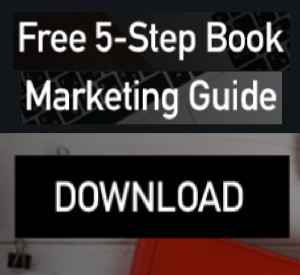Penguin Random House, Simon & Schuster, HarperCollins—most authors dream about getting their manuscript picked up by a big-name publisher. And for many years, that was basically the only way to get your book published.
But those days are gone thanks to the popularity of self-publishing, coupled with the rise of independent publishing houses. Instead of going big straight out of the gate, you might want to consider the advantages of using a smaller publisher. Here’s why.
1. There are more opportunities for niche books.
Large publishers are all about profit, so anything considered niche would likely have a hard time seeing the light of day. Smaller publishers, however, are more willing to take on the manuscripts that might have a slimmer profit margin. In fact, certain presses even make it their calling to specifically publish and promote the types of books that appeal to a very narrow audience. So if you happen to be writing a tome on, say, the history of jam making, you will likely find a home for it somewhere that recognizes and honors that niche vision.
2. They catch the hits that big publishers miss.
While it is rare, small publishers occasionally notice a diamond in the rough that gets overlooked in the machine that is big publishing. This is often due to the fact that independent companies spend a bit more time per manuscript since they have less to sift through. You shouldn’t get discouraged if you strike out with the larger companies; it doesn’t mean that your work isn’t valuable or worthy.
3. They act as a middleman between large publishing and self-publishing.
Some authors who have decided to forego large publishing houses swing hard the other way and consider self-publishing. But using a small or independent press for your book can be the perfect compromise in a lot of ways. Instead of putting the burden on you to edit, proofread, format, and come up with cover art, a small publisher can do all of that for you (and usually in-house). This can be a great relief, especially for those writers who would rather focus on, well, the writing.
4. Agents aren’t needed.
It can be a challenge in and of itself to get your work seen by a major publishing house if you don’t have a literary agent. Such agents often work as a liaison between the publisher and the author, helping the latter get their work into good enough shape to be presented to the bigwigs. But independent publishers are happy to take literary submissions directly from the writer, often working with them one-on-one if any changes or edits are deemed necessary.
5. They welcome new writers.
Some authors— King, Grisham, Rowling—draw in the big numbers and offers based on their names alone. And those big numbers translate to even bigger dollar signs. But for first-time writers who are looking to establish an audience, a smaller press might be just what’s needed. Because these publishers’ margins are smaller, they are more likely to take a risk on a brand-new writer to see what happens.
6. There is more personal attention.
Nobody wants to be just another number. And that can be what it feels like when a publishing house has thousands of writers to deal with. Independent publishers are smaller and thus more able to give their clients the kind of love and attention that makes a writer feel special. Forging a professional relationship that sees you through—from the very first submission all the way to print—can help give you the confidence you need to believe in yourself and your work. And that kind of attention can prove to be invaluable.
7. Communication is quicker.
Another perk of using a small press is that since the ratio of employers to writers is typically much lower than that of a larger publishing house, the chances are much higher that you will get speedier and more satisfactory communication. While that doesn’t mean writers should feel free to bug editors with every tiny query that pops into their heads, it does mean that when genuine questions or issues arise, the writer will likely be taken seriously.
8. They can be a great means to an end.
Those who work at smaller or independent publishing houses know the score: many authors, especially first-time ones, use them for their first manuscript or two as a way of jumping off onto big publishing houses. And that’s OK too! Everyone has to start somewhere, and smaller presses are a great place to do that. If your book takes off and you begin generating impressive numbers of sales and a robust fandom, it is certainly possible that larger publishers will sit up and take notice. Just keep in mind that this particular scenario requires a lot of effort and marketing.
There is absolutely nothing wrong with wanting to pursue the powerhouses of the publishing industry. After all, those avenues still make some of the biggest splashes on “best of” lists. But it’s important to realize that those publishing houses are not the end all and be all of literature. Getting creative with your manuscript may be exactly what you need to do in order to have it read by a wider audience—after all, isn’t that the whole point?
Andrea Moran lives outside of Nashville with her husband and two kids. She’s a professional copywriter and editor who loves all things books. Find her on LinkedIn.





